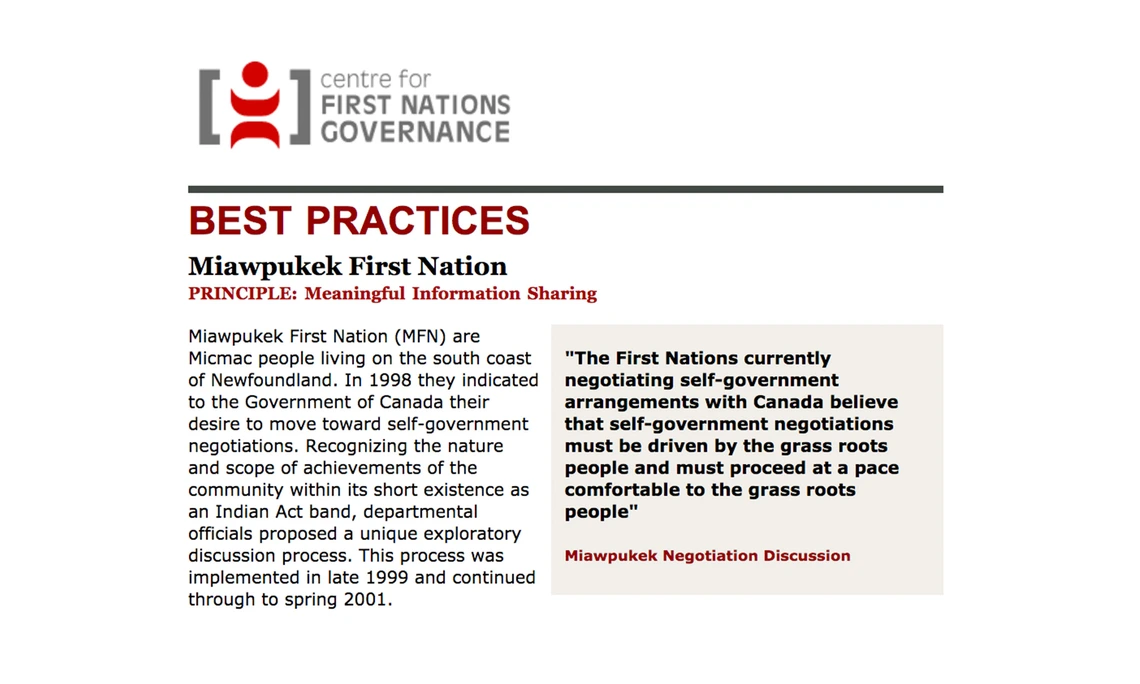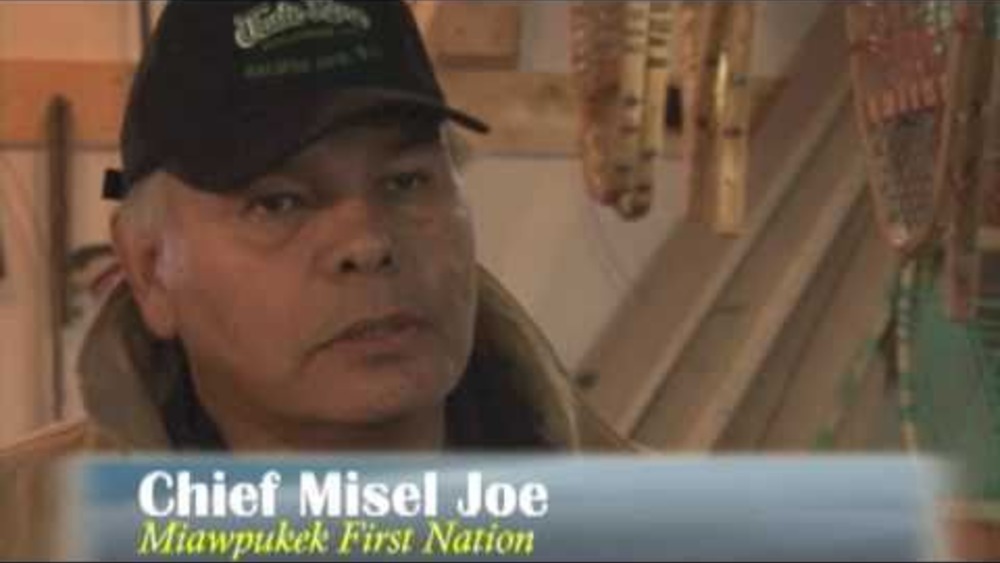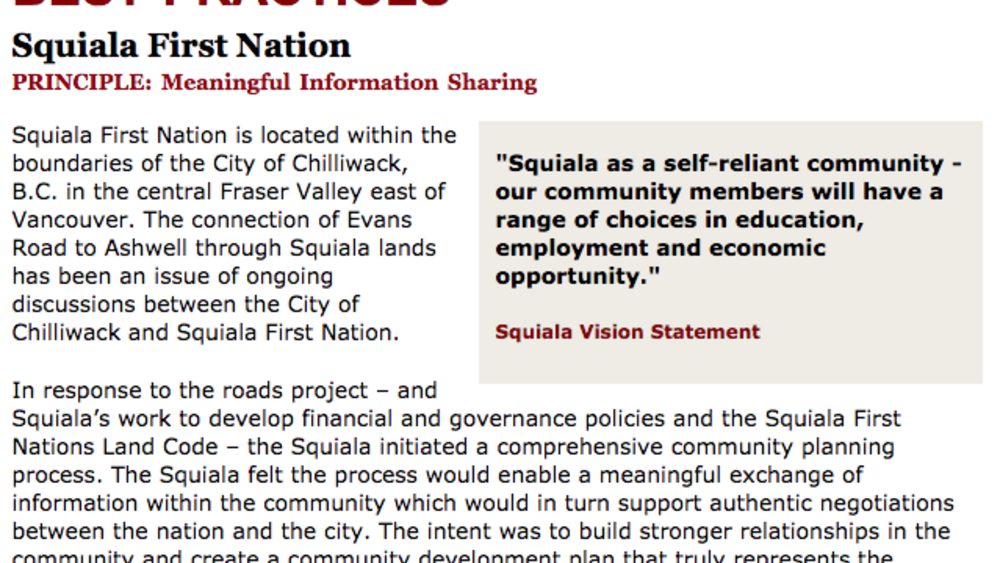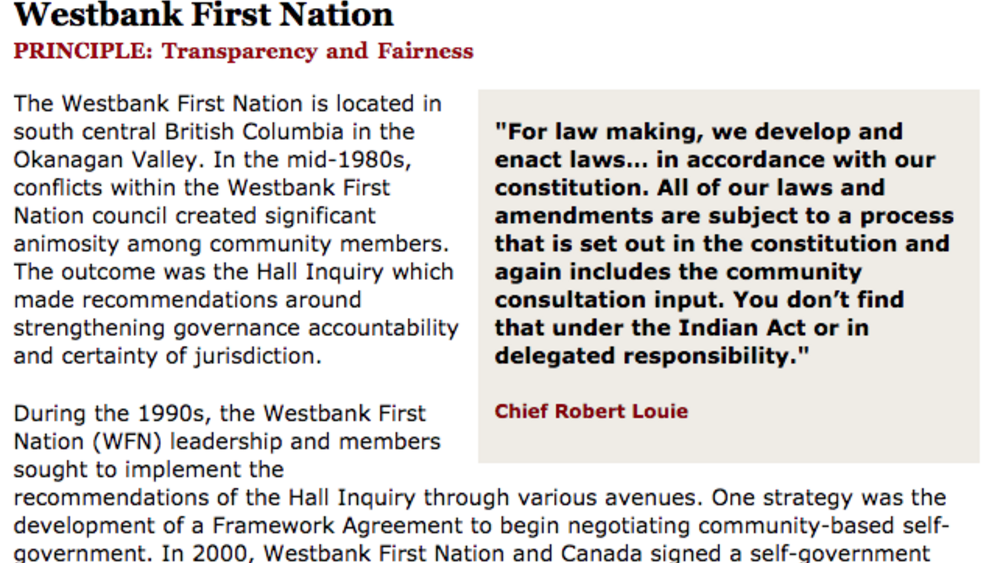Miawpukek First Nation (MFN) are Micmac people living on the south coast of Newfoundland. In 1998 they indicated to the Government of Canada their desire to move toward self-government negotiations. Recognizing the nature and scope of achievements of the community within its short existence as an Indian Act band, departmental officials proposed a unique exploratory discussion process. This process was implemented in late 1999 and continued through to spring 2001...
Additional Information
National Centre for First Nations Governance. "Best Practices Case Study (Meaningful Information Sharing): Miawpukek First Nation." A Report for the National Centre for First Nations Governance. The National Centre for First Nations Governance. Canada. June 2009. Case Study. (https://fngovernance.org/wp-content/uploads/2020/06/MIS_Miawpukek.pdf, accessed March 8, 2023)




